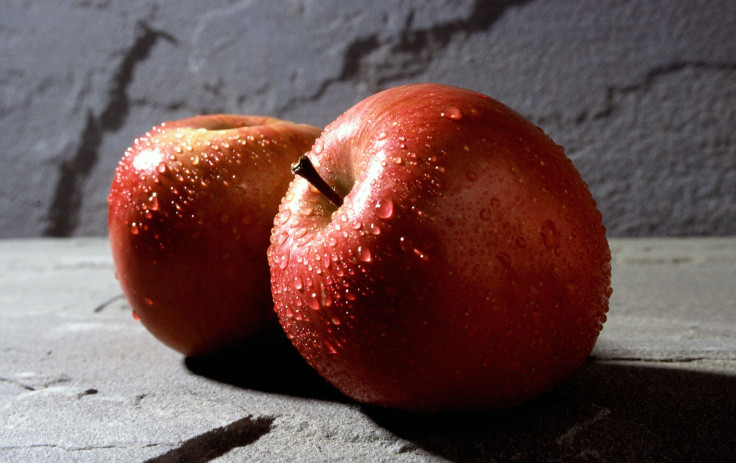China Welcomes US Apple Imports; Should Boost Apple Growing Industry By 10 Percent

Apple sales in China — that’s the fruit, not the digital gadgets — are about to get a lot sweeter for U.S. farmers. The U.S. Department of Agriculture has announced a deal with Chinese authorities to allow for China to import all varietals of American apples. The agreement opens up a new consumer base to U.S. growers and could spur 10 percent growth in the apple-growing industry over the next two years, according to a statement by the USDA this week.
The deal has the potential to create sales of 5 million bushels of apples worth a total of $100 million, according to industry analysts and the USDA. That is double the amount of apples that were shipped to China when imports were last allowed, according to Jim Bair, president and CEO of the U.S. Apple Association, who participated in last weekend’s negotiations with China in San Francisco. The entire American apple industry was valued at $1 billion in 2013.
Bair says commercial growers of all sizes will benefit from the arrangement — whether they plan to sell to China or not. Small and large farms often cooperate to fill orders and shipments that no one farm can manage, and small growers who sell only in the U.S. no longer will have to compete directly with the boxes of apples that will be sold overseas. “A rising tide lifts all boats,” Bair said.
In the apple-heavy state of Washington, for example, growers now export about 3 million cartons of apples a year to China. Those apples bring in about $55 million a year for the state’s farmers. The Washington State Apple Commission hopes to double that revenue with new sales in China. The president of the commission has flown there to meet with potential buyers in Guangzhou, Beijing and Shanghai and pass out samples of popular varieties from Washington that will be new to Chinese customers, like Cripps Pink, Gala and Honeycrisp.
“Our domestic market is pretty stagnant and it hasn't grown in many years, so being able to export those varieties and get them off the manifest is a great opportunity,” said Danelle Huber, international marketer for the commission.
In recent years, Washington growers have been able to send only Golden Delicious and Red Delicious apples to the Chinese after a fungus scare in 2012 caused officials to stop issuing permits for imports. Now, apples of all types could start arriving in China in as soon as 45 days. From Washington, fresh apples are shipped in refrigerated containers atop barges to arrive in Shanghai or another port after a journey of about 30 days.
“This year, everybody across our nation has record crop years, so we're looking to put apples into whatever market will take them and not flood our own market,” says Huber. Canada and Mexico buy the most Washington apples of any country outside of the U.S., and China was in fourth place when imports were last permitted.
The new deal also allows Chinese growers to export apples to the U.S., which has caused some concern among growers about not only domestic competition, but the transfer of pests and diseases to their plants and soils, according to a statement by the U.S. Apple Association. China is currently the world’s largest apple producer.
© Copyright IBTimes 2024. All rights reserved.












